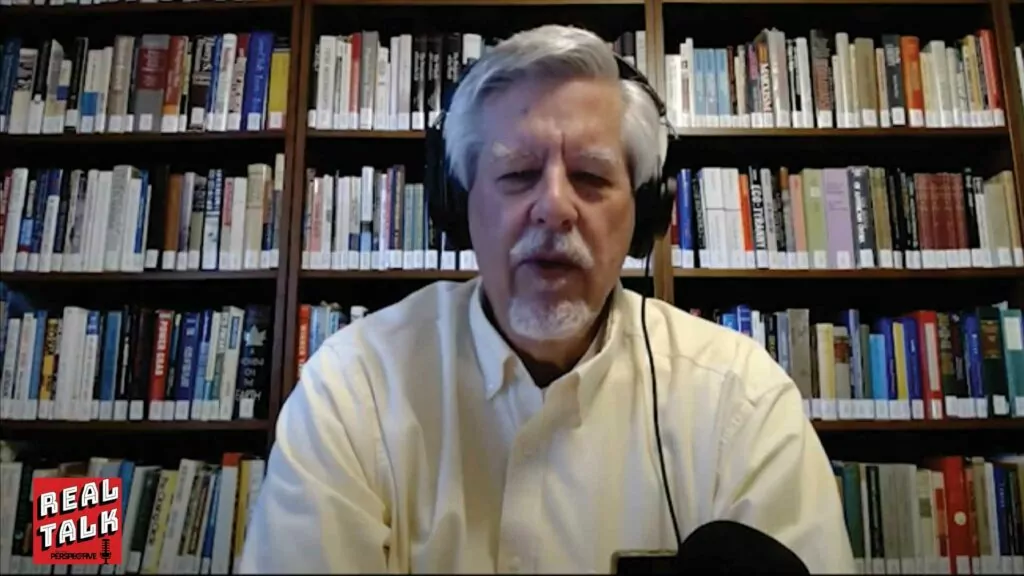The Apostles’ Creed, as we possess it today, was not the first formally adopted or crafted creed. That honor belongs to the Nicene Creed. However, versions or parts of the Apostles’ Creed, serving as a baptismal confession, can be traced back to Irenaeus of Lyons (180), Tertullian of Carthage (200), Cyprian of Carthage (250), and Rufinus of Aquilega (390) among others. The creed of Marcellus of Aneyra from 340 reads:
I believe in God the Father Almighty.
And in Jesus Christ, his only Son, our Lord;
Who was born of the Holy Ghost of the Virgin Mary;
Was crucified under Pontius Pilate and was buried;
The third day he rose from the dead;
He ascended into heaven; and sitteth on the right hand of the Father;
From thence he shall come to judge the quick [living] and the dead.
And in the Holy Ghost;
The Holy Church;
The forgiveness of sins;
The resurrection of the body.
Despite the various articulations of the rule or standard of faith, there was a lot of unity on the core tenets of Christianity. Eventually, these various forms were merged into the Apostles’ Creed.
However, it took longer still for it to be universally adopted. In his History of the Christian Church (Vol. 1), Philip Schaff suggests that:
“if we regard, then, the present text of the Apostles’ Creed as a complete whole, we can hardly trace it beyond the sixth, and certainly not beyond the close of the fifth century, and its triumph over all the other forms in the Latin Church was not completed till the eighth century, or about the time when the bishops of Rome strenuously endeavored to conform the liturgies of the Western church to the Roman order.”
The Apostles’ Creed has as its foundation Peter’s confession in Matthew 16:16: “You are the Christ, the Son of the living God” and the baptismal instruction in Matthew 28:19: “… baptizing them in the name of the Father and of the Son and of the Holy Spirit.” While the Apostles’ Creed is sometimes divided into “twelve articles of the Christian faith” it would be fair to suggest that there are three main divisions:
- God the Father and our creation
- God the Son and our redemption
- God the Holy Spirit and our sanctification (cf. Heidelberg Catechism, Lord’s Day 8).
A hedge against 3 heresies
The Apostles’ Creed was articulated, not only as a baptismal confession, but also as a defense of orthodox Christianity. In the early church, Gnosticism, Marcionism, and Montanism were threats to the unity and purity of the church.
- Gnosticism
In his book, A History of Christianity (2 Volumes), historian Ken Latourette explains that:
“[Gnosticism] regarded pure spirit as good, but thought of that spirit as having become imprisoned in corrupt matter. Salvation was the freeing of spirit from matter.”
They also had a view of God that is quite convoluted. Latourette notes that, in general, Gnostics “held that there exists a first Principle, the all-Father, unknowable, who is love and who alone can generate other beings” and since love demands companionship, the all-Father brought forth other beings into existence who collaborated to create this world. “The present world was ascribed to a subordinate being, the Demiurge, who was identified with the God of the Old Testament.”
- Marcionism
Marcion, influenced by, but distinct from Gnostics, believed that the God of the Old Testament and of the Jews was an evil God. As Latourette his views this way: “’Good men,’ he held, were those who yielded obedience to the law of the Demiurge, but they, too, were the creation of that evil God.”
He believed that there was a second God, one of love who, seeing the suffering of men in this evil world, sought to rescue them. His love was one of true grace because he owed these creatures nothing because they were not his, but belonged to the evil God. This God of Love revealed himself as Christ and could not have been born of flesh, born as a creature of the Demiurge, but only seemed to have a body; he only appeared as a man.
- Montanism
Montanism was quite distinct from Gnosticism and Marcionism. While Gnosticism spoke about secret knowledge, Montanism suggested a new era of revelation. Montanus, sometime between 156 A.D. and 172 A.D., encouraged greater separation of the church from the culture of the age. While this could have been solid instruction, it was accompanied by his belief that he and his two prophetesses were speaking in tongues and prophesying in the name of the Spirit, focusing on the early and imminent return of Christ. Bruce Shelley, in his book, Church History in Plain Language, notes:
“Montanus’ doctrine of the new age of the Spirit suggested that the Old Testament was past, and that the Christian period centering in Jesus has ended. The prophet claimed the right to push Christ and the apostolic message into the background. The fresh music of the Spirit could override important notes of the Christian gospel; Christ was no longer central. In the name of the Spirit, Montanus denied that God’s decisive and normative revelation had occurred in Jesus Christ.”
After error, clarity
These three early heresies helped the church to shape the growing articulation of orthodoxy. It also drove the church to work on discovering which bible books should be canonical. For example, the Montanists wanted nothing to do with the Old Testament, had very little good to say about New Testament books written for Jews (e.g., Matthew, Hebrews), and really focused on Paul’s more substantial letters. Montanus’ canon would have been significantly smaller than what we have presently, to be sure.
When the church formulated and adopted the Apostles’ Creed, they confessed, contrary to the Gnostics and the Marcionites that God, the Father almighty, is the same God who created all things, both physical and spiritual. They also confessed that Jesus Christ was conceived by the Holy Spirit and born of the virgin Mary. In this, they again made it clear that there is nothing inherently evil in material things. They also make it clear that there is no division between God the Father, Son, and Holy Ghost – they are not working at odds with each other. While the unity and diversity of the one God in Three Persons is implied in this creed, it is not explicitly expressed.
Schaff explains that the creed was:
“explained to catechumens at the last stage of their preparation, professed by them at their baptism, often repeated, with the Lord’s Prayer, for private devotion, and afterwards introduced into public service.”
As a means to make a profession of faith before baptism, Schaff also explains that some early versions of the creed were interrogative, that is, the three main sections were formed as questions. For example, “do you believe in God the Father Almighty, Maker of heaven and earth?” The response: “I believe” or in Latin, “Credo.”
The Creed today
The Apostles’ Creed remains an integral part of many Reformed catechisms as well. Working through the Apostles Creed today remains valuable for growing in knowledge and understanding of God’s holy Word. The confession that God is the Father Almighty speaks to His sovereign power, providence, and covenantal love. The creed’s commentary on Christ speaks to His nature as God and man, His victory over death and the grave, His ascension, His return, and His coming judgment. The creed speaks about the work of the Holy Spirit as He is at work in the Church, the Bride of Christ: those who live as a communion of saints whose sins are forgiven, who will be raised on the last day, and are promised eternal life!
The Church has been richly blessed by the formulation and the preservation of the Apostles Creed. Perhaps it makes sense to recite it daily during family devotions, or when you get up in the morning. Keeping this creed in our hearts and at the forefront of our minds may assist in equipping us for remembering that every day serves as an opportunity for serving the Lord!
In the episode below of his Focal Point podcast, Dr. deBoer discusses some points about the most controversial phrase of the creed, ”He descended into hell.”















